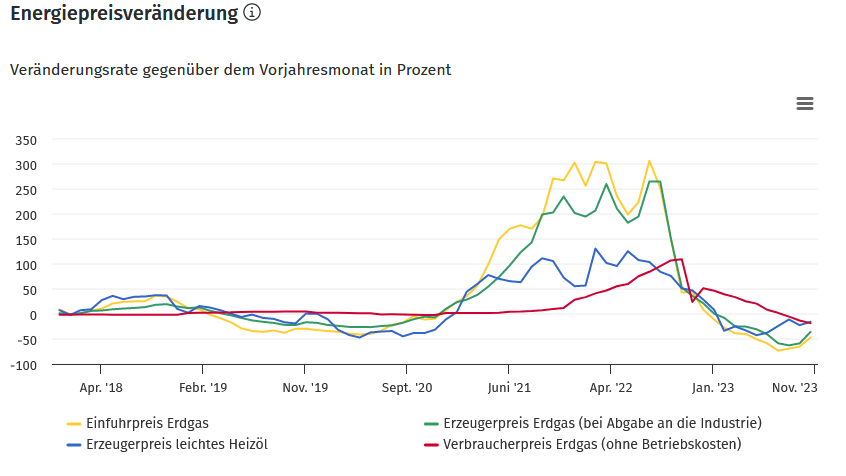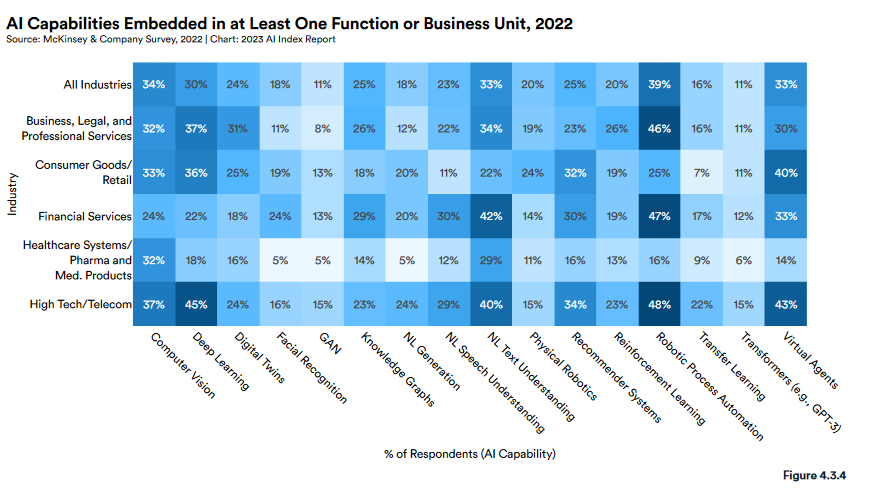In today's rapidly evolving business landscape, organizations are navigating through almost unprecedented challenges and opportunities - compared to the last decades. As such, the need for effective project portfolio management has seldom been more critical, and this is where a PMO plays a pivotal role. The current macroeconomic trends emphasize the importance of a PMO in ensuring organizational success and resilience. Let’s take a closer look at why that is the case..
Are you interested in learning more about project portfolio management?
Our article "Project Portfolio Management - An Introduction For Practitioners With Little Time On Their Hands" is a comprehensive resource for anyone who wants to delve deeper into the subject.
Economic Uncertainty and Volatility
Today’s global economic conditions are characterized by uncertainty and volatility. The aftermath of events like the COVID-19 pandemic - but also the current global tensions have highlighted the need for businesses to be agile and adaptable. A PMO provides a structured framework for organizations to manage projects efficiently, adapt to changing circumstances, and mitigate risks effectively - at the portfolio level. The ability to swiftly reallocate resources and reprioritize projects is crucial during economic uncertainty.

Source: Dashboard Deutschland
A good example of what rapid global development organizations are currently exposed to is illustrated by Germany’s energy price development. Germany, heavily dependent on gas and oil-based energy resources, experienced a drastic upsurge starting in September 2020 - which lasted until the beginning of 2023. Organizations of all sizes and industries had to react fast - especially when the associated energy contracts were not secured long-term. In our own study #SHIFTHAPPENS2023, we find that a majority of companies reacted with cost savings initiatives, whilst postponing more investment-heavy and risky projects. PMOs are not only crucial when it comes to deprioritizing the right projects in a given portfolio, they are also equally important for centralized communication - and hopefully swift change back to formerly planned project portfolio trajectory towards the strategic goals.
Increasing Complexity of Projects.
As technology continues to advance, projects are becoming increasingly complex. Organizations are integrating new technologies, dealing with intricate regulatory landscapes, and managing diverse teams across different geographies.
A striking example of this is the ubiquitous advent and adoption of AI. Let’s take a look at the United States as the forerunner of AI adoption on the company level: The proportion of companies adopting AI in 2022 has more than doubled since 2017, though it has plateaued in recent years between 50% and 60%, according to the results of McKinsey’s annual research survey. More importantly, organizations that have adopted AI report realizing meaningful cost decreases and revenue increases.

Similarly, the study finds that in every sector in the United States, except for agriculture, forestry, fishery, and hunting, there has been an average increase in AI-related job postings. This indicates a growing demand among U.S. employers for individuals possessing AI-related skills. But AI has already come a long way. The AI functionalities that are probably integrated into businesses encompass robotic process automation (39%), computer vision (34%), NL text understanding (33%), and virtual agents (33%). Additionally, the most prevalent AI application in 2022 was service operations optimization, succeeded by the development of new AI-based products, customer segmentation, customer service analytics, and the new AI-based enhancement of products. Companies that operate in industries prone to be disrupted by AI, are asked to run the project portfolio especially tight.
A PMO helps streamline these complex processes, ensuring that projects are executed seamlessly from initiation to completion. A good PMO also drives the standardization of project management practices within the organization and thereby contributing to greater efficiency and the reduction of repeated errors.
Resource Optimization in a Remote Work Environment
The rise of remote work has become a defining characteristic of the modern business environment. Let’s take a look at yet another example. In April 2022, the percentage of German employees who worked from home part-time was found to hover around 25%, according to a survey by the ifo Institute. In fact and despite the removal of the remote-working obligation on March 20, the number of people working from home has remained relatively high. This suggests that many companies have embraced more flexible working arrangements permanently. However, it seems worth mentioning that the ifo Institute had previously estimated a potential for 56% of the entire German workforce to work remotely. It hence seems likely that remote work is here to stay - and has the potential to grow even further.

Source: ifo Institute
Managing projects with teams dispersed across various locations poses unique challenges. A PMO facilitates effective communication, collaboration, and resource allocation in virtual work settings. By leveraging project portfolio management tools and methodologies, the PMO ensures that remote teams remain aligned with organizational goals, promoting productivity and successful project delivery.
Data-Driven Decision-Making
In an era where data is king, the ability to make informed decisions based on accurate information is a competitive advantage. A PMO establishes a robust system for collecting, analyzing, and utilizing project and project portfolio data. This data-driven approach enables organizations to identify trends, optimize processes, and make strategic decisions that positively impact overall business performance.
PPM tool Falcon: Your solution for lean project portfolio management
Do you already use a PPM tool for your project portfolio management in your company? At Nordantech, we have developed Falcon: An intuitive and streamlined project portfolio management software for complex project portfolio management. As a market leader in the strategy and transformation sector, Falcon makes it easier for PMOs, leading consultants and private equity firms to plan, manage and report on their most important projects and processes.
Would you like to find out more about our PMO tool Falcon?
Achieving Strategic Objectives
With organizations facing constant pressure to innovate and stay ahead of the competition, strategic alignment is crucial. A PMO serves as the bridge between project execution and strategic objectives, ensuring that the project portfolio is aligned with the overall organizational strategy. This alignment enhances the likelihood of successful project delivery, contributing to the achievement of long-term business goals.
TLDR
We highly recommend setting up a PMO - especially today, since the current economic landscape demands a proactive and strategic approach to project portfolio management, making a PMO more crucial than ever. By providing structure, standardization, and a data-driven framework, a PMO enables organizations to navigate challenges, capitalize on opportunities, and achieve sustained success in today's dynamic business environment. As businesses continue to evolve, the role of the PMO will remain central in driving project success and organizational resilience.

